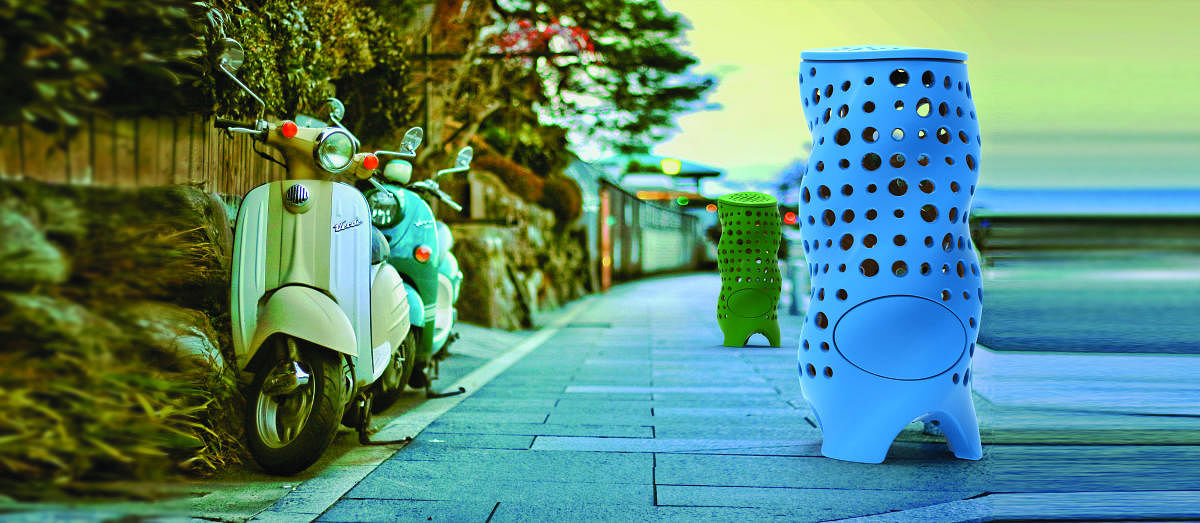Showcased at the ongoing Bangalore Design Week, the designs stand out for their visual appeal. But their functionality would be tested once the drawing board designs morph into prototypes. Mass production will then be explored through a tripartite tie-up that includes Daily Dump, the design studio and corporate partners.
So, what thinking went into the designs, one of which might just give Bengaluru a green makeover?
Chinmay Dholakia from Ether Designs explains: “We have gone into a different scale of manufacturing that saves cost, offers beautiful possibilities of shape and form, keeps cost low, reduces parts and joinery; a single monolithic shape of sorts.”
The idea was to stick to a design that scores high on adaptability.
“Our approach was oriented for mass production. Look at how the Sintex tank and a particular form of a plastic chair has become hugely popular due to their adaptability. Our concept was to use recycled engineering plastics, roto moulding and make the composter sturdy,” says Dholakia. Simplicity is at the core of the composter’s design.
“Sweep the leaves off parks and streets and dump them into the cylindrical composter. Water it regularly for the first month or so, and take out the compost through an outlet at the bottom after four to six months.” The more the leaves are composted, the better the end product. “Compost could be sold for Rs 4 a kg if it is four months old. You can charge Rs 8 a kilo if it is six to seven months old.”
An alternative concept, the 'Flexa Compostor' proposes using a simple plastic tarpaulin stitched into a sack. “The material is easily available, can be reused, is weather-proof and rugged. The sack has plastic rivets which creates adequate air movement within. Similar orifices at the container bottom allow water to drain out when needed,” Flexa’s designers explain.
